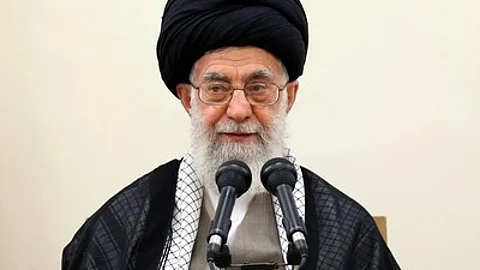

The sixth round of indirect negotiations between the United States and Iran is scheduled to take place this Sunday in Muscat, Oman.
Iranian Foreign Ministry spokesman Esmaeil Baghaei confirmed the upcoming meeting on Monday, stating, “Based on the consultations held, the next round of indirect Iran-U.S. talks is being planned for Sunday in Muscat.”
The announcement follows Iran’s revelation that it has obtained a significant cache of classified intelligence from Israel. According to Iranian officials, the trove includes Israel’s targeting data for a potential strike on Iran, as well as information on secret nuclear facilities within Israeli territory.
Tensions escalated Monday after Iran formally rejected the latest U.S. proposal, which would have temporarily permitted Iran to enrich uranium at a level of 3.67%—in line with the 2015 nuclear deal—until a regional consortium could be established to oversee a phased dismantling of Iran’s nuclear program.
Speaking Monday, Rafael Grossi, Director General of the International Atomic Energy Agency (IAEA), confirmed that Iran had informed the agency it would withdraw from the Non-Proliferation Treaty (NPT) and pursue nuclear weapons development if Israel attacked its nuclear infrastructure. Grossi also verified that Iran had indeed obtained thousands of sensitive nuclear files originating from Israel.
In a separate statement, Iran’s Atomic Energy Organization warned that, “If the IAEA does not appreciate our cooperation, then we will simply reduce our cooperation.”
Later Monday, Iran’s Supreme National Security Council issued a stark warning, declaring that any Israeli military strike would be met with retaliatory attacks on Israel’s secret and undeclared nuclear facilities.
Against this backdrop, U.S. President Donald Trump and Israeli Prime Minister Benjamin Netanyahu held a 40-minute phone call. According to reports in Israeli media, Netanyahu signaled a willingness to accept uranium enrichment at the 3.67% level and dropped Israel’s demand for the complete dismantling of Iran’s nuclear program.
Speaking to reporters afterward, Trump said, “Iran’s negotiators were too tough. We don’t want destruction and death. I hope it’ll work out.”
The shift in tone from both Trump and Netanyahu—combined with Iran’s apparent leverage through its intelligence disclosures and threats of withdrawal from international treaties—suggests a potentially significant shift in negotiating dynamics that may not have been anticipated by Washington or Tel Aviv.
Iran has reportedly submitted a counter-proposal, insisting on permanent domestic enrichment rights and immediate sanctions relief. Trump acknowledged on Monday that the U.S. had received the proposal and was reviewing it.